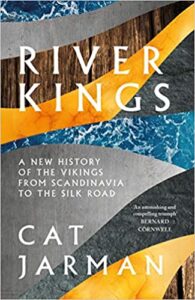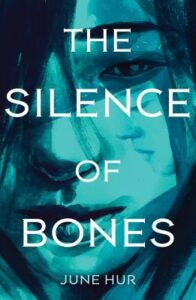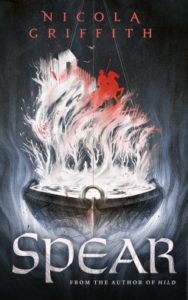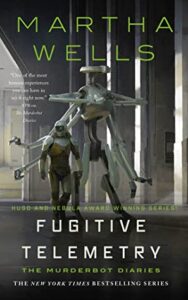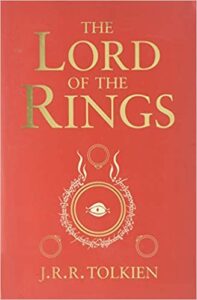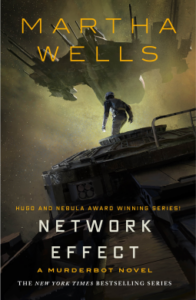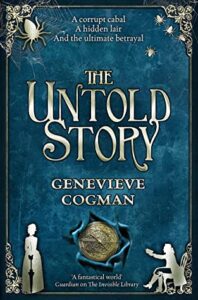 The Untold Story, Genevieve Cogman
The Untold Story, Genevieve Cogman
Here we are, at the end of Irene’s story! At least for now. And what a finale it is, digging into the secrets of the Library, wrapping up questions that we’ve had all along, putting paid to enemies, seeing old friends, and answering some things that seemed like inconsistencies. I’ll try not to say too much, since it’s only been out for a few days, and instead keep my comments relatively spoiler-free, though you can expect to see me mention characters who are involved (or not) and stuff on that level.
Speaking of which, it feels a little odd to me that Lord Silver’s involvement is so very small. It makes sense in the context of the story — I didn’t question it at all — and he does have a part to play twice in the course of the story… but after we’ve been thrown together with him in book after book, his absence at a few key points rings oddly. Though, in the context, his presence wouldn’t make sense, so this is more of a meta-comment on my expectations.
Anyway, those who haven’t read the previous books in this series technically get some hints along the way of the history and how things work, but I really wouldn’t recommend starting here. It’s the eighth book of a series which has had a few recurring themes, a lot of recurring characters, and where a lot of detail has been sketched in to support the plot. There’s enough here to remind someone who hasn’t read the other books recently of what’s going on, but not enough for a total beginner. (I don’t understand why people start a series of this sort in the middle anyway, but seemingly they do.) You won’t care about the characters if you don’t know how they got here.
There are a few moments that caught me by surprise in how they were handled — notably Irene’s interactions with her birth parents. It felt very right for Irene, in fact, but I guess if I’d expected a misstep in how Irene’s relationships with those around her were handled, it would be here. But no, Cogman handled the moments well, balancing just enough curiosity and feeling with Irene’s affection and admiration for the people who raised her.
I was a bit nonplussed to find other reviews complaining that everything turns out perfectly at the end. It feels like they missed some of the losses along the way: sure, there are good things about the ending, but it’s not quite the status quo, either. I guess I too would’ve expected a more fundamental shift at the end… but I wouldn’t say that the ending is unalloyed joy, either.
And with that, I’ll leave others to find out for themselves…


